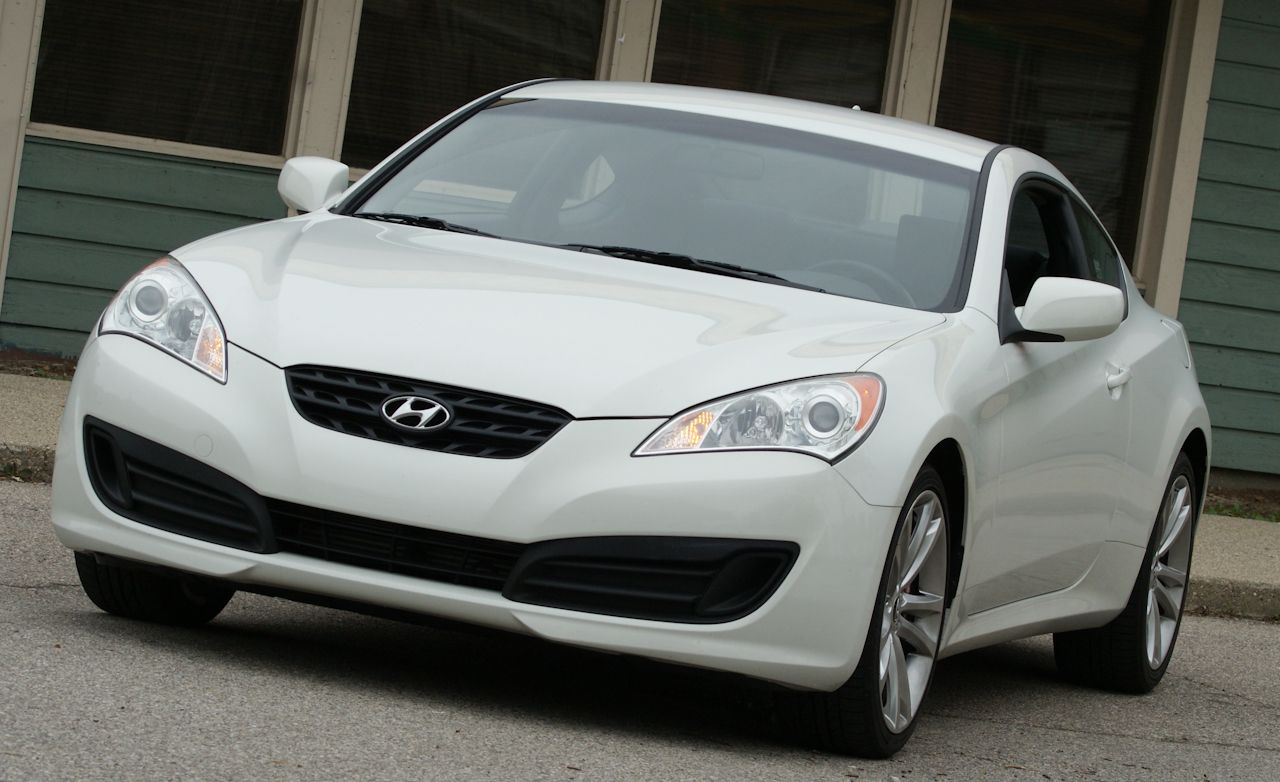

- #2010 HYUNDAI GENESIS COUPE BLUETOOTH MUSIC DRIVERS#
- #2010 HYUNDAI GENESIS COUPE BLUETOOTH MUSIC FULL#
The base 2.0T comes standard with 18-inch alloy wheels, keyless entry, a tilt (but not telescoping) steering column, air-conditioning, full power accessories, cruise control, a leather-wrapped steering wheel and shift knob, a trip computer, Bluetooth and a CD/MP3 stereo with USB/iPod connectivity and steering-wheel-mounted controls. The 10-cubic-foot trunk is surprisingly useful, particularly with the rear seats folded down, but the folding procedure requires an awkward reach deep into the trunk. The rear seat, though, is strictly for kids and cargo.

The power seats that come standard on higher trim levels are superbly shaped for both enthusiastic driving and long-distance cruising. Despite being an upgrade, the Infinity audio system generates only mediocre sound. Controls are generally intuitive, but navigating through the stereo's tonal adjustments is too labor-intensive.
#2010 HYUNDAI GENESIS COUPE BLUETOOTH MUSIC DRIVERS#
The driving position is excellent, with abundant outward visibility despite the low-slung seating position however, the lack of a telescoping steering wheel means that drivers with shorter legs may find the wheel uncomfortably close to their chests. The dash's swooping curves flow into the door panels, necessitating an unconventional sideways orientation for the power window and mirror switches. The Genesis Coupe's cabin boasts an alluring mix of eye-catching contours and generally high-quality materials, though the silver-painted plastic on the center stack is clichéd. We weren't sure we'd ever be saying this about a Hyundai performance car, but the Genesis Coupe is the real deal. The BMW 128i comes the closest, but its polarizing exterior design hurts its case, and the Nissan 370Z is too single-minded in its sportiness to present a real challenge. But no other coupe can match the Hyundai's combination of style, refinement and performance for the price. One could also consider the retro-themed and enjoyable Ford Mustang GT a competitor for the 3.8 Track model. Note that the Genesis Coupe does have a clear rival in the bang-for-the-buck category - the new 2010 Chevrolet Camaro, which offers a sophisticated 300-hp V6 at the Genesis Coupe 2.0T's price point, and a honking 422-hp V8 priced opposite the top-of-the-line Genesis Coupe 3.8 Track. We've often said that Hyundai's models are "nice for the price," but the Genesis Coupe is just a nice car, period. The rear seat is useless for adults, but you can fit a couple kids back there in a pinch. The cabin is particularly impressive, boasting an enveloping cockpit-like environment. The exterior sheet metal is handsome and sporty - calling the coupe the best-looking Hyundai ever would be a perfectly reasonable statement. There's very little wrong with the 2010 Hyundai Genesis Coupe from a style or design perspective. The only powertrain lowlight is the shifter/clutch tandem on manual-transmission models - the shifter lacks precision, and neither it nor the clutch likes to be rushed. Should you wish to keep your Genesis' warranty intact, the turbo-4 is adequate right out of the box, and the uplevel 3.8-liter V6 provides burly acceleration with an exhaust note to match. Considering the car's affordable base price and the presumptive ease with which horsepower can be increased by aftermarket tuners, the 2.0T will likely be the trim of choice for young hot-rodders. The Genesis Coupe's 2.0T trim levels come with a 210-horsepower, 2.0-liter turbocharged four-cylinder.

If you're looking for a stylish coupe with serious performance, the Genesis Coupe is one of the best deals on the market. It's a genuinely sporting car that can run with its benchmark, the Infiniti G37 coupe, in all respects save straight-line acceleration. While the Coupe is laudably comfortable and refined, it has none of the sedan's plush, isolated character. Drive them back to back, though, and you'll think they might as well be from different planets. Yes, the Coupe's uplevel 3.8-liter V6 is similar (though not identical) to the sedan's base engine, and yes, the cars roll on the same basic platform. The 2010 Hyundai Genesis Coupe shares its name with the Genesis sedan, but that's effectively where the sharing stops.


 0 kommentar(er)
0 kommentar(er)
